Tennessee lawmakers killed a bill to close primaries and delayed another that would force state-run primaries, adding a severability clause amid legal concerns. Voters spoke loudly—legislators dodged. TruthWire follows the fight for party autonomy.
By TruthWire News – April 2, 2025
On Tuesday, Tennessee lawmakers made two things perfectly clear: they have no interest in closing the state’s open primaries, and they’re quietly hedging their bets on a bill that would give the state even more control over political party operations.
SB777, a bill to close open primaries and curb crossover voting, was procedurally killed in the Senate State and Local Government Committee. Senator Adam Lowe (R-Calhoun) moved to present the bill—but not a single member of the committee seconded his motion. The bill was neither discussed nor voted on. It simply died in silence.
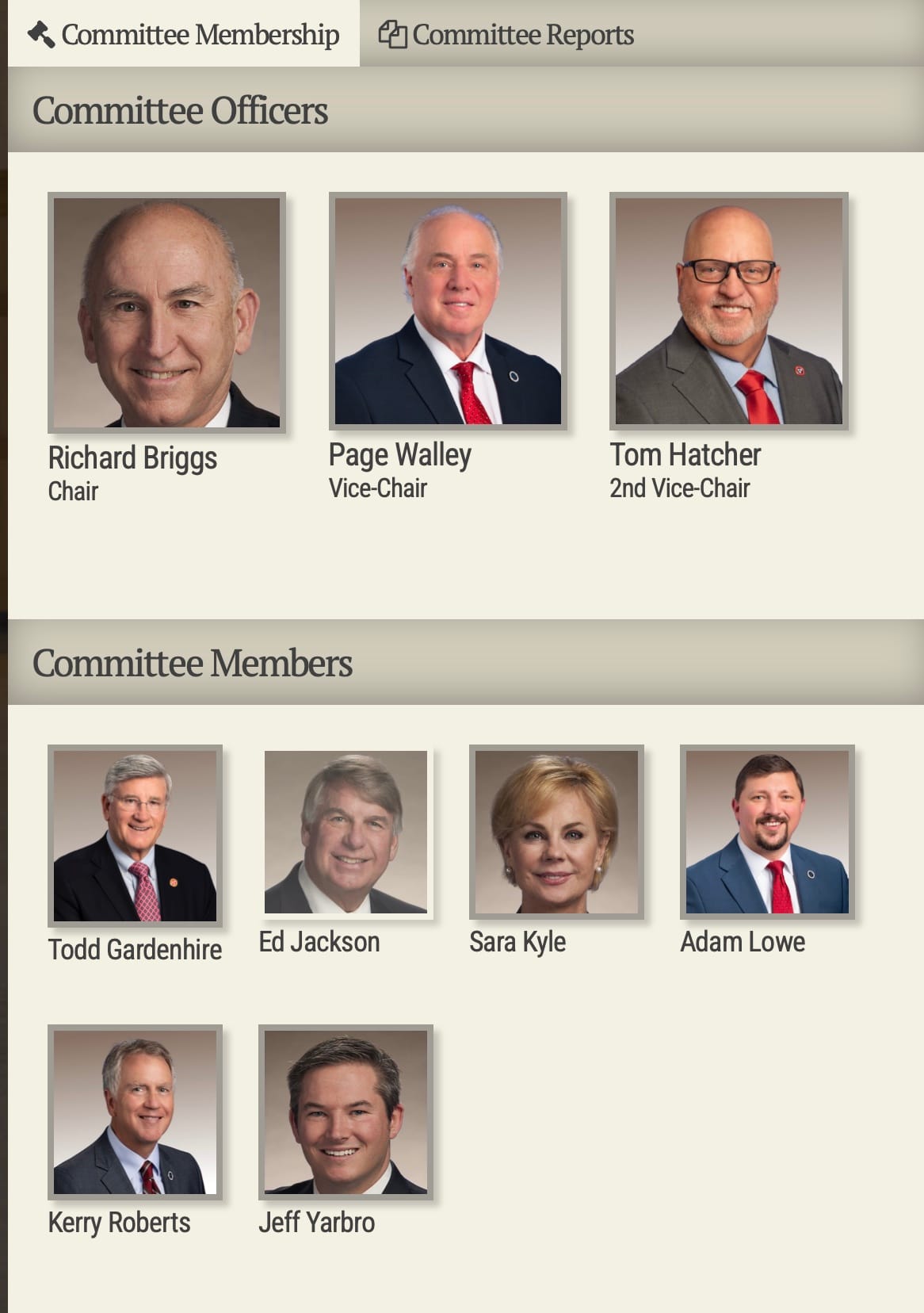
This kind of maneuver is a favorite among lawmakers who want to dispose of politically sensitive bills without ever going on record. There's no floor debate to point back to, no votes to track—just a vanishing act designed to avoid accountability. It’s a calculated way to shut down a conversation without having to justify the decision.
The timing is remarkable considering the public engagement leading up to the hearing. According to Tennessee Stands, 8,932 emails were sent by constituents urging the committee to pass SB777 (and its House companion HB0886). That kind of outreach doesn’t happen by accident—it reflects deep frustration among grassroots conservatives who are tired of watching non-Republicans influence Republican primaries. The silence of the committee in the face of that pressure says far more than a "no" vote ever could.
While SB777 was silenced, another bill—HB855/SB799—was expected to be presented in both chambers on Tuesday but was instead quietly rolled to today, April 2. No explanation was offered publicly, but the delay coincided with the filing of a new amendment: a severability clause added to HB855 by sponsor Rep. Lee Reeves (R-Franklin).
Severability clauses are legal mechanisms that allow the rest of a law to remain intact if one portion is struck down by a court. While common in many pieces of legislation, they’re not meaningless filler—and when added late in the game, they signal concern. In plain terms, a severability clause is a parachute. You don’t reach for one unless you think the plane might crash.
Reeves brushed off concerns, saying in an X post:
“I’m an old contract attorney. Thought I was missing an important piece of boilerplate. Turns out I’m good without it.”
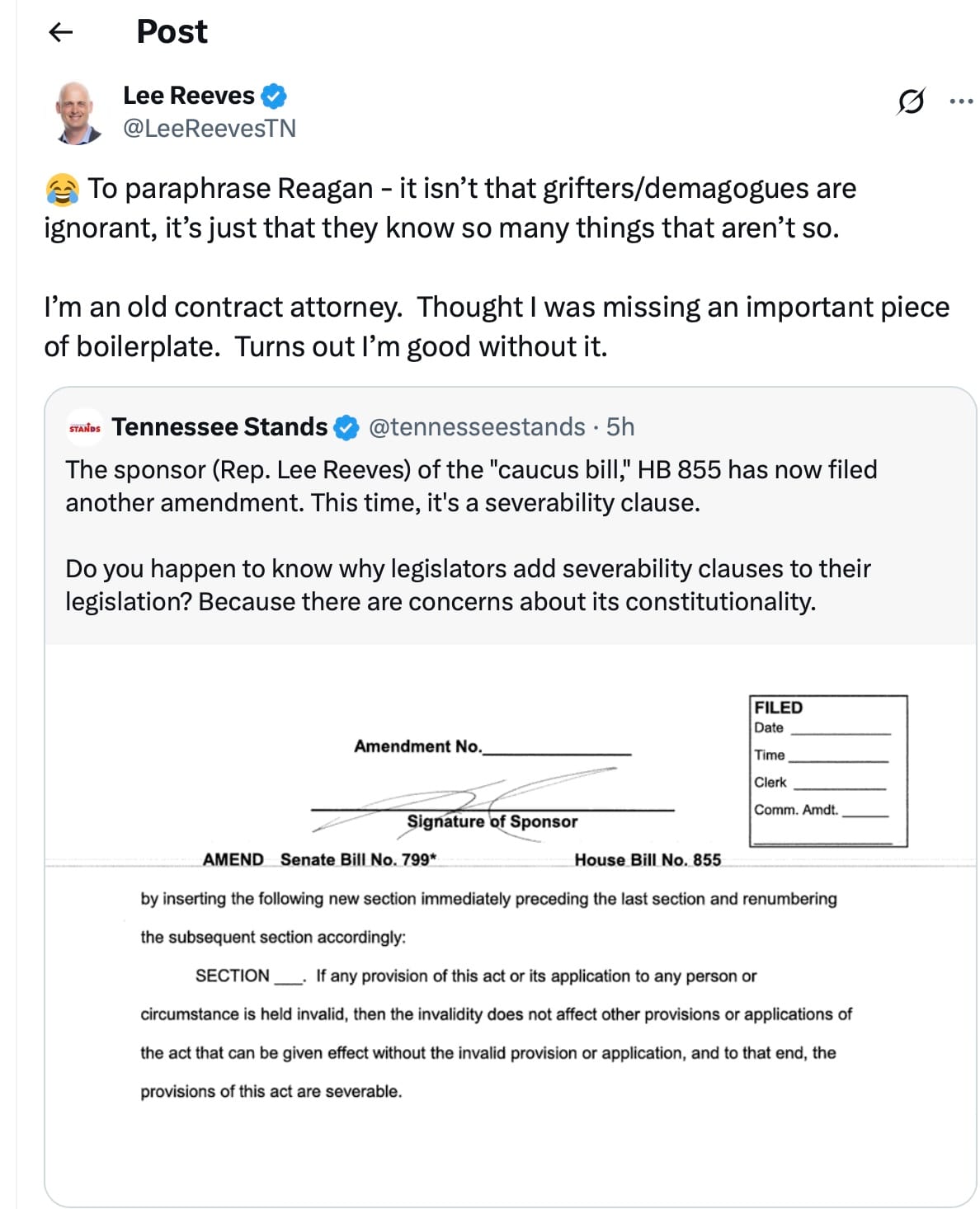
But legislation isn’t a contract—and this isn’t boilerplate. In contract law, severability protects private parties from having their entire agreement voided if one clause is invalid. In legislation, a severability clause is a legal red flag. It exists to limit the collateral damage when a law is challenged in court—often because the sponsors themselves know it’s walking a constitutional tightrope.
That appears to be the case with HB855/SB799. The bill would mandate that counties use state-run primaries for partisan nominations, effectively phasing out local conventions. It removes flexibility, penalizes counties for switching formats, and locks them into a permanent structure dictated by the state. It also raises immediate constitutional concerns. Two U.S. Supreme Court decisions—Eu v. San Francisco Democratic Committee and Tashjian v. Republican Party of Connecticut—affirm the rights of political parties to determine how they select their nominees. HB855, as written, crosses into that protected territory.
Adding to the confusion, Senator Richard Briggs (R-Knoxville), Chair of the Senate State and Local Government Committee, responded to a TruthWire inquiry by stating that the bill only applies to state and federal races, and not to county offices. That claim is false. The bill clearly impacts partisan county-level elections and significantly limits the ability of local parties to use conventions. Whether the misstatement was due to a misunderstanding or a deliberate attempt to downplay the bill’s scope is unclear—but either explanation is troubling.
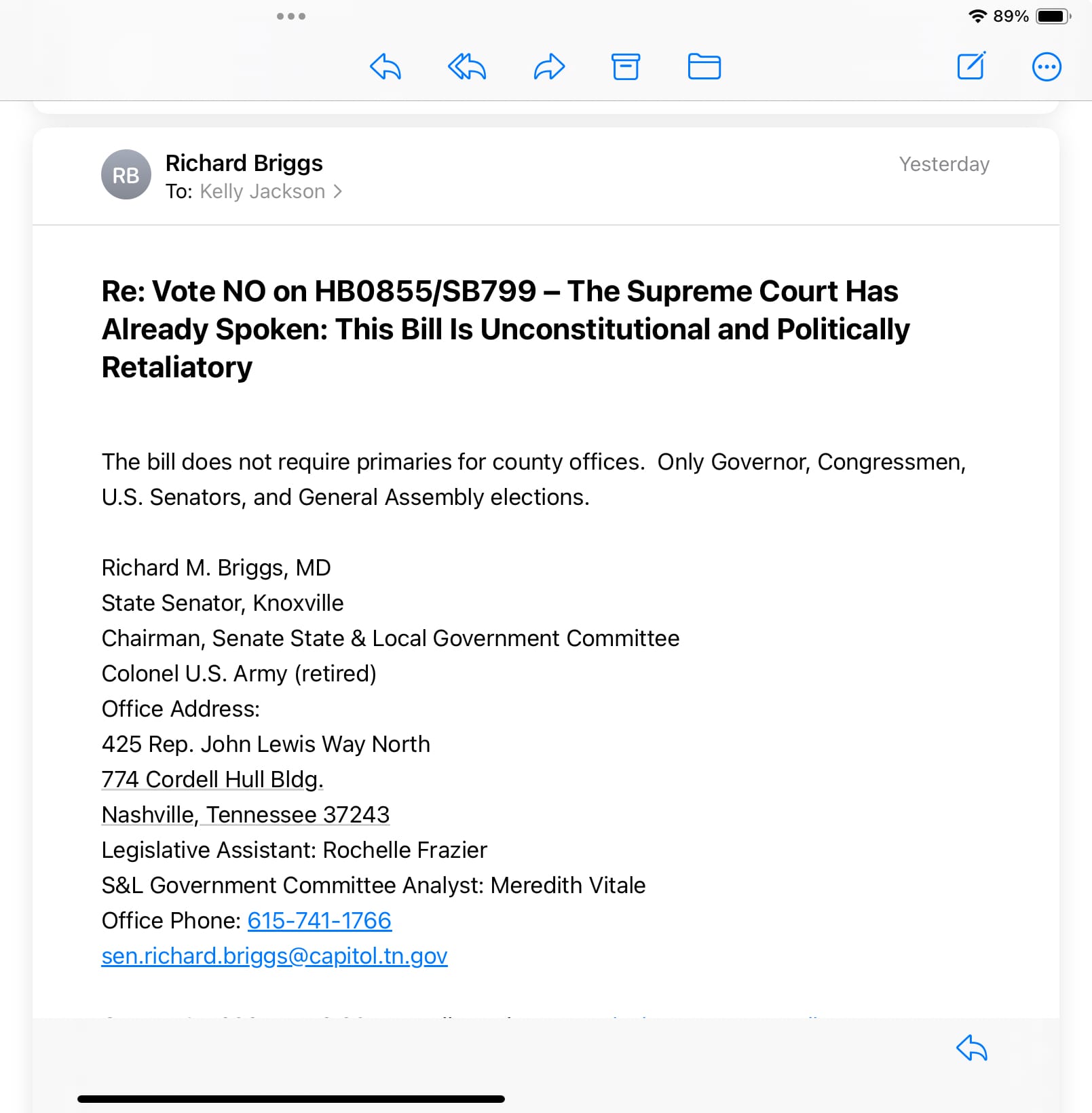
Meanwhile, public opposition to HB855/SB799 has grown steadily. As of yesterday, according to data from grassroots advocacy group Tennessee Stands, more than 7,000 emails had been sent opposing the bill. Combined with support for HB0886/SB777, Tennessee lawmakers have received over 15,000 constituent emails on these two election-related bills in recent days. The response to that volume of public feedback? One bill was smothered without discussion. The other was quietly delayed and legally modified to brace for a potential court fight.
Today, both HB855 and SB799 are expected to be heard in their respective House and Senate State and Local Government Committees. These hearings will mark the first real test of whether Tennessee lawmakers are prepared to listen to their constituents—or continue down the path of centralizing control over local party processes.
Voters should be paying attention. One bill has already been buried. Another is being pushed forward with a legal warning label stapled to it. If legislators pass it anyway, they’ll do so with full awareness that what they’re voting for might not hold up in court—and with even fuller confidence that by the time the fallout comes, they’ll be long gone.
If you believe political parties—not politicians—should control how they choose their candidates, now is the time to act. Contact your legislators and demand they vote NO on HB855/SB799 before it's too late. TruthWire will continue tracking every move—and holding the process accountable.
If you support what I do, please consider donating a gift in order to sustain free, independent, and TRULY CONSERVATIVE media that is focused on Middle Tennessee and BEYOND!

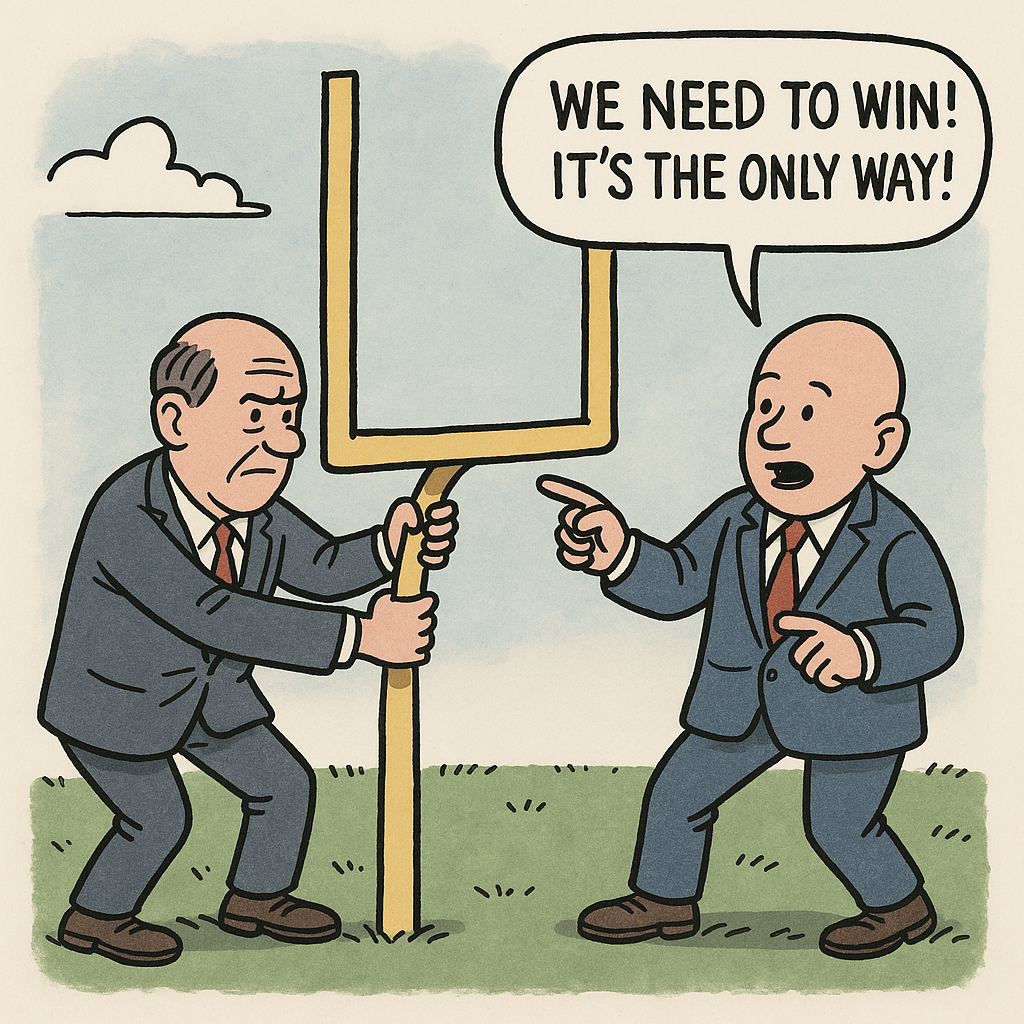
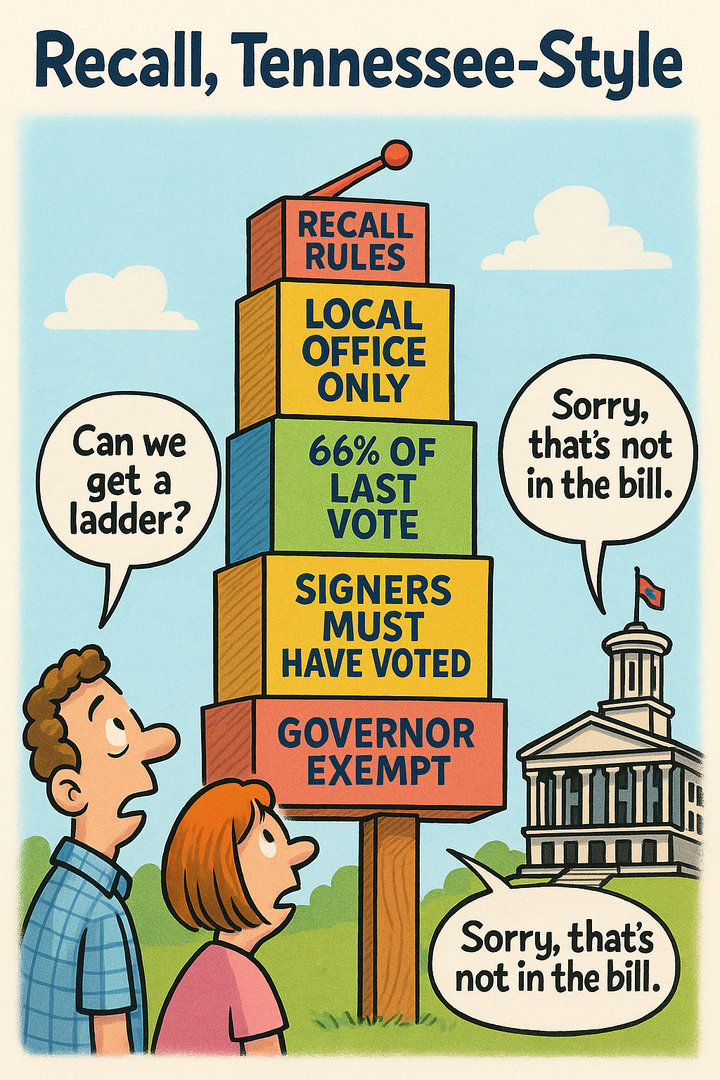


Comments ()